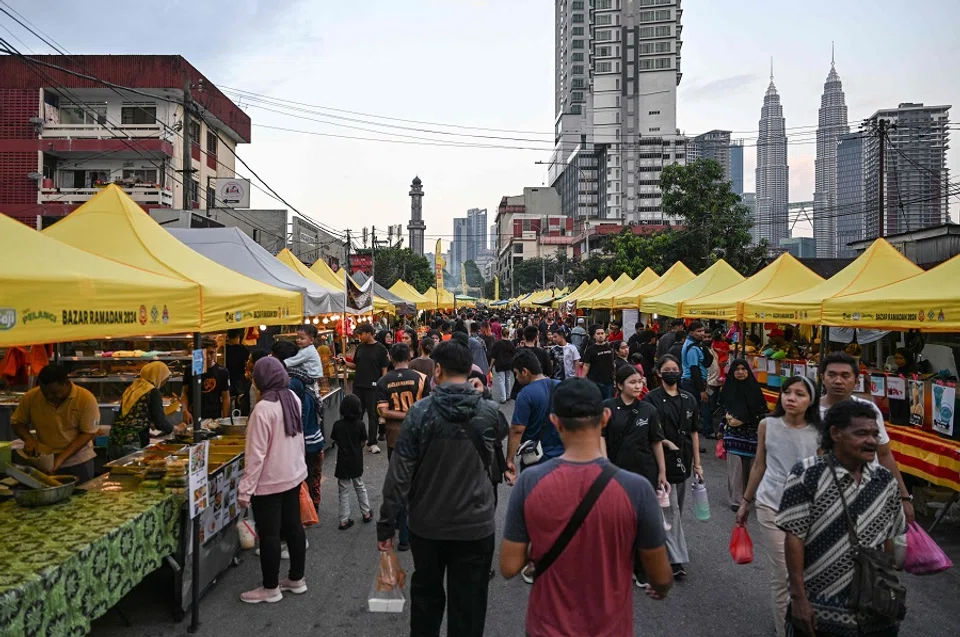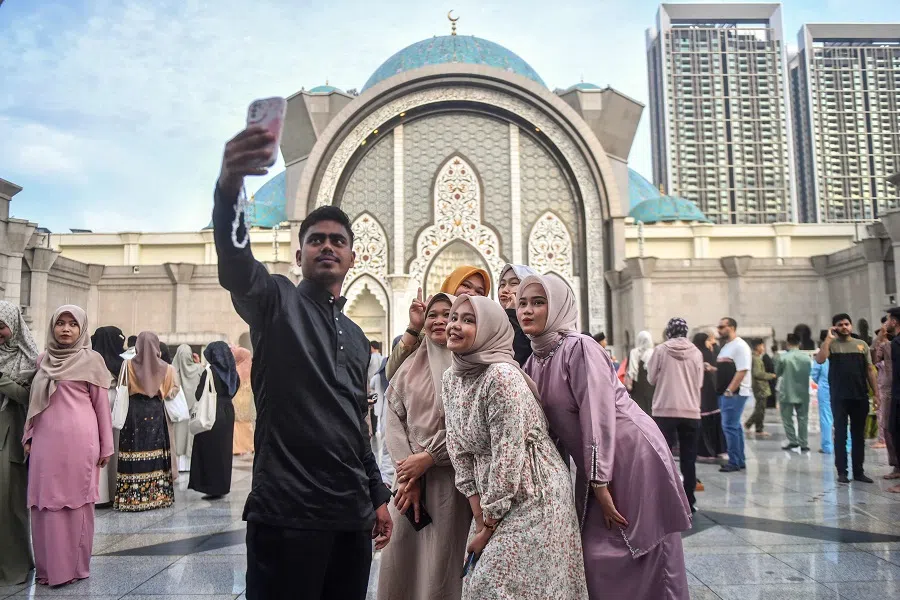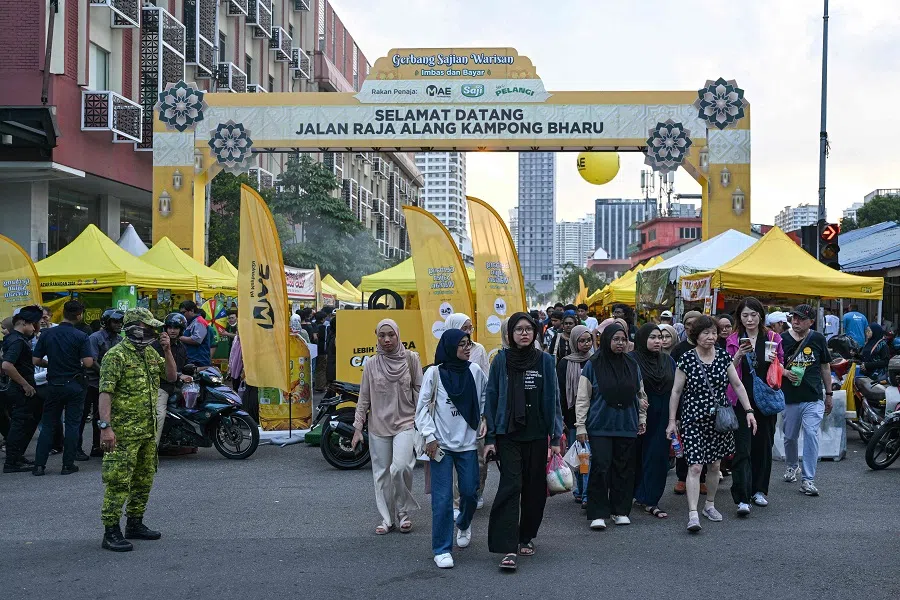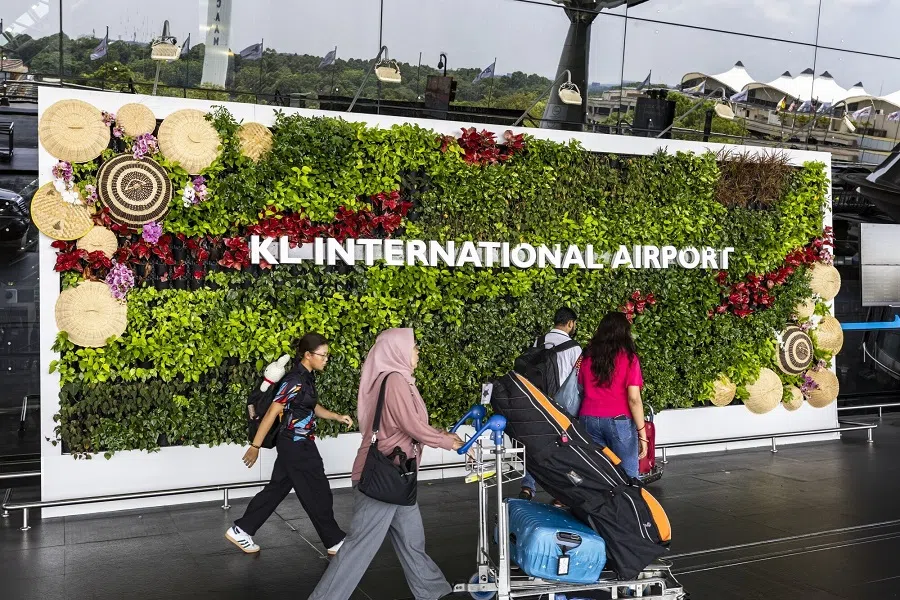Are foreign Chinese spouses disadvantaged under Malaysia's immigration policies?
Malaysia has implemented several changes to its visa restrictions in order to encourage more foreigners to invest and reside in the country. However, obstacles remain aplenty in the process of permanent residency applications for foreign spouses, despite having set up roots and having families in the country. Lianhe Zaobao correspondent Seoow Juin Yee looks into the matter.

The Malaysian government has recently relaxed its visa restrictions in a bid to encourage foreigners to invest and live in Malaysia, but the policies remain strict for foreign spouses.
Many spouses of Chinese nationality living in Malaysia have lamented that they face difficulties in renewing their residence permit, with the application for permanent residency an even more burdensome process.
In the past decade, China's economic growth has taken off, and an increasing number of people have come to Malaysia for studies, to invest, as well as to do business. However, long before this immigration wave, there have been many Chinese who have married Malaysians and live in various parts of Malaysia.
Director of the Institute of China Studies at the University of Malaya Ngeow Chow Bing wrote an article in September 2022 estimating that there were around 82,000 Chinese migrants in Malaysia, including around 6,000 Chinese spouses.
"Applying for permanent residency is my right. I was a taxpayer, and my children are Malaysian citizens - the authorities have no reason to reject my application." - Liu Yi, a Chinese spouse married to a Malaysian husband
Language barrier an obstacle to permanent residency
Ngeow told Lianhe Zaobao that Malaysia's policies towards foreign spouses were not very friendly, with many foreign spouses having lived in Malaysia for many years but still unable to obtain permanent residency.
He said, "Due to issues such as the language barrier, Chinese spouses could have a more difficult time compared with applicants from other countries. Among the Chinese people living in Malaysia, the Chinese spouses have the most grievances."
Liu Yi (39, housewife), who hails from Chongqing, China, came to Kuala Lumpur in 2004 for her studies, and later stayed on for work. In 2009, she married her Malaysian husband, and the two have a ten-year-old daughter and a seven-year-old son.

After Liu decided to set up roots in Malaysia, in 2016 she filed an application hoping to receive a Malaysian "red identity card" (referring to permanent residence permit).
According to Malaysian law, foreigners who have been married to a Malaysian citizen for at least five years may apply for permanent residency.
However, Liu's application went nowhere as its status on the immigration website did not reflect any updates. She said, "During this time, my husband and I kept calling the immigration department hotline, but no one picked up. When we inquired at the immigration department's counter in person, the official just said that there was no news."
Liu waited for seven years, only to finally receive a letter from the immigration department in July 2023 that her application had been rejected.
She said, "It was like being struck by lightning. I have been living in Malaysia for 20 years, and the application took seven years but the authorities just rejected it without specifying a reason."
Liu said that her friends had advised that it was necessary to get an under-the-table deal done in order to ensure that the application successfully goes through. She shared, "But I felt there was no need to do so. Applying for permanent residency is my right. I was a taxpayer, and my children are Malaysian citizens - the authorities have no reason to reject my application."

She has already lodged an appeal with Malaysia's Ministry of Home Affairs but felt that the chances of a reversal were slim. She added, "This is an overly politicised issue; it's said that it is harder for Chinese people to apply for permanent residency or citizenship, but easier for Indonesians or Bangladeshis to get approved."
Chen, a businessman in Selangor, said when interviewed that he also faced difficult officials when he was helping his Chinese wife with her visa application.
Chen and his wife have been married for ten years, and she is currently holding a long term social visit pass, commonly known as a "spousal visa", which can be renewed each time for a maximum of five years. However, he said that his wife could only get at most two years for each visa renewal. Each time they renewed her visa at the immigration department, they were at the mercy of the official's whims.
He said, "The visa's validity largely depends on the mood of the official. Some applicants are given three years while others only obtain a year or six months. The officials also request for different documents each time you apply for a visa."
... since it is quite difficult for Chinese people to apply for permanent residency in Malaysia, they are often disadvantaged when it comes to child custody if the couple gets divorced. - Huang Bin, Secretary, Malaysia China Welfare Advisory Society
Divorce a bane to foreign spouses fighting for child custody
Huang Bin, secretary of the Malaysia China Welfare Advisory Society, also said that visa and permanent residence applications are the main problems faced by Chinese spouses.
Huang pointed out that since it is quite difficult for Chinese people to apply for permanent residency in Malaysia, they are often disadvantaged when it comes to child custody if the couple gets divorced. He explained that under most circumstances, Chinese wives do not work in Malaysia and are financially reliant on their Malaysian husbands. He said, "The court would certainly favour the father in custody cases under such circumstances."

The Malaysia China Welfare Advisory Society has handled several reports from the Chinese, and one in every 20 complaints is a case of a Chinese person seeking help for a custody dispute with a Malaysian after a divorce.
Since 1 December last year, Malaysia and China implemented mutual visa exemption measures, and the Malaysian government accordingly lowered the thresholds for various visas. At the end of last year, the Ministry of Tourism, Arts and Culture also introduced an optimised version of the Malaysia My Second Home programme, which lowered the age limit and financial requirements of applicants in order to attract more people to invest and reside in Malaysia.
In this regard, Liu is puzzled why Malaysia warmly welcomes foreigners but has such a harsh policy against foreign spouses. She said that she previously held a student visa and work permit in Malaysia, and both of these had been easier to obtain than a permanent residence permit after getting married.
"I deeply felt that my life has gotten more difficult after I married a Malaysian because I am just my husband's dependent. In the past, I could open a personal account at a bank, but now I can only open a joint account with my husband," she said.

Liu's biggest concern is that if something happens to her husband and she is deported as a result of not being able to renew her visa, the plight of her children would be worrisome.
Figures released earlier by the National Registration Department showed that only 45 individuals from China were granted Malaysian citizenship between 2019 and 2023.
Malaysia's Ministry of Home Affairs: No delays in approvals
Based on a Sin Chew Daily report, responding to a question posed by Wong Chen, member of parliament for Subang, on 12 March, Deputy Minister of Home Affairs Shamsul Anuar Nasarah said that the approval period for permanent residence applications is 90 working days and that there is no delay in approvals.
In response to Wong's comment that many people had to wait ten to 13 years to obtain permanent residency, Shamsul Anuar pointed out that the Ministry of Home Affairs has been improving the application process and will communicate with non-governmental organisations to avoid misunderstandings.
Shamsul Anuar added that the National Registration Department has approved 2,769 citizenship applications from 2018 to June 2023. Nearly half (1,325) were Indonesians, 381 were Malaysians without citizenship rights, and the rest were people of other nationalities.

Figures released earlier by the National Registration Department showed that only 45 individuals from China were granted Malaysian citizenship between 2019 and 2023.
Shamsul Anuar also noted that anyone can apply for citizenship as long as they meet the requirements, including registering their marriage in Malaysia, having resided in Malaysia for at least two years prior to application, and having good conduct. However, he stressed that these are only application conditions and do not guarantee approval.
This article was first published in Lianhe Zaobao as "马国外籍配偶政策严苛 过埠妻子定居难".




![[Big read] When the Arctic opens, what happens to Singapore?](https://cassette.sphdigital.com.sg/image/thinkchina/da65edebca34645c711c55e83e9877109b3c53847ebb1305573974651df1d13a)
